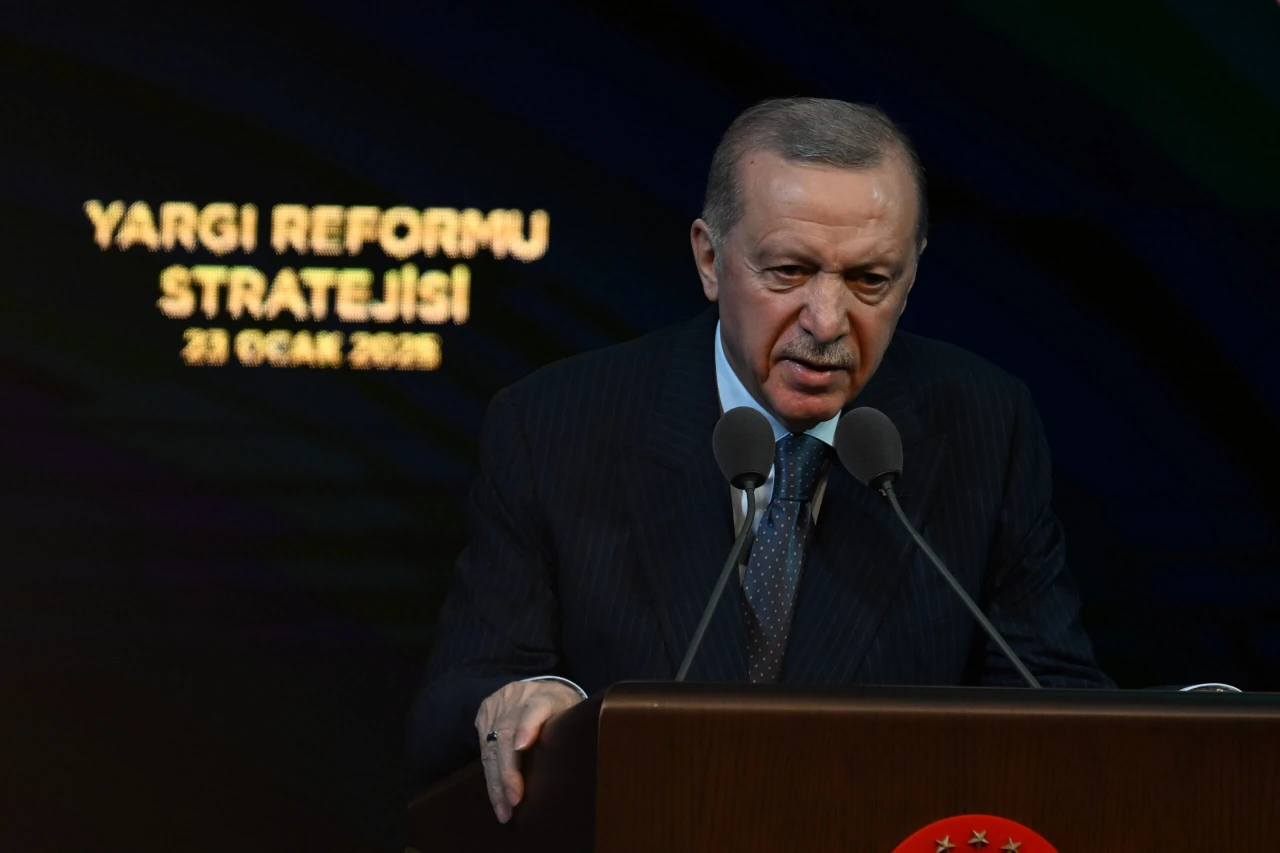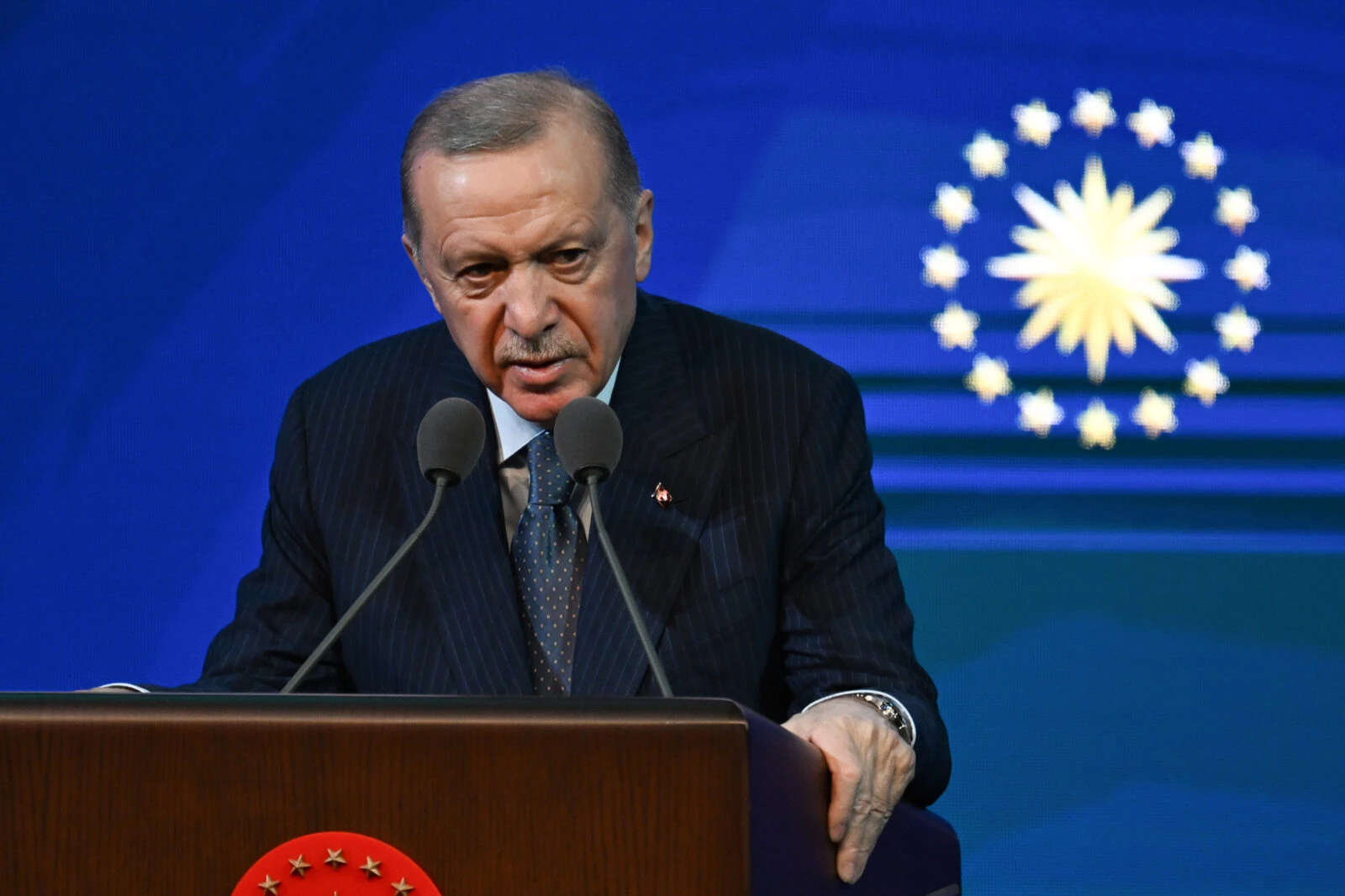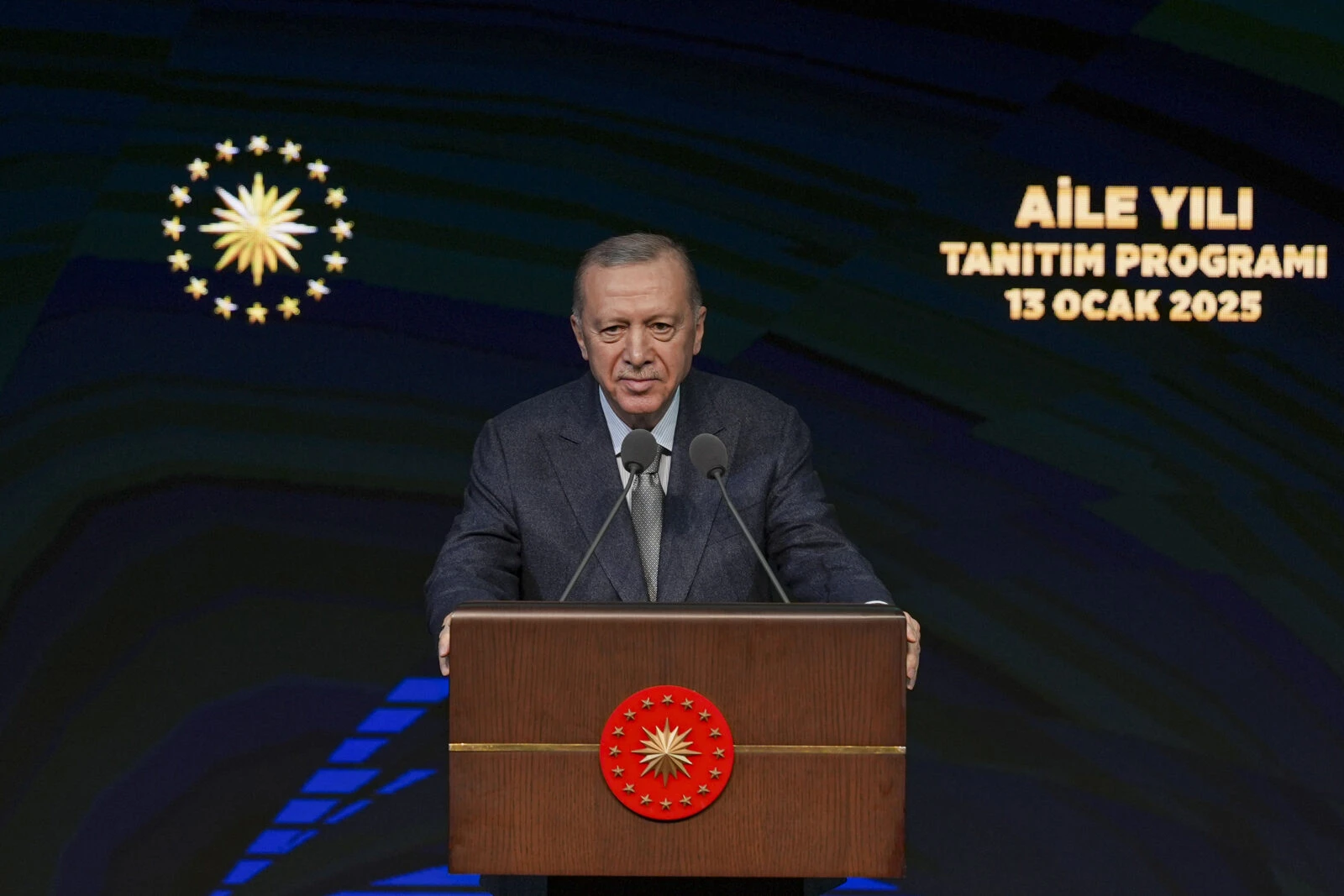Erdogan announces five-year plan to reform Türkiye’s courts
 President Recep Tayyip Erdogan speaks during the Debut of Judicial Reform Strategy Document at Bestepe Nation’s Convention and Culture Center in Ankara, Türkiye on January 23, 2025. (AA Photo)
President Recep Tayyip Erdogan speaks during the Debut of Judicial Reform Strategy Document at Bestepe Nation’s Convention and Culture Center in Ankara, Türkiye on January 23, 2025. (AA Photo)
President Recep Tayyip Erdogan announced Türkiye’s extensive judicial reform package on Thursday, unveiling a five-year strategy that promises to overhaul the country’s legal system with 45 targets and 264 specific activities aimed at strengthening judicial independence and expediting court proceedings.
The Fourth Judicial Reform Strategy, spanning 2025-2029, introduces sweeping changes to court organization, legal education, and technological infrastructure while placing special emphasis on protecting women’s rights and combating domestic violence.
“The reputation of the judicial authority that makes decisions on behalf of the Turkish nation and the public’s faith in justice is above all considerations,” Erdogan said during a ceremony at the Presidential Complex in Ankara, where he presented the reform package alongside senior judiciary officials and government leaders.

The reforms target one of the most significant challenges facing Türkiye’s judicial system: lengthy trial periods.
Under the new strategy, appeal processes must be completed within six months, with both the Court of Appeals and Council of State restructuring their chambers and member numbers to handle caseloads more efficiently.
In a major structural change, the reform introduces specialized courts for environmental, health, insurance, traffic and workplace accident cases. The strategy also establishes a new professional category of assistant judges and mandates attorney representation in certain cases.
Türkiye to implement judicial reforms to address violence against women
To address violence against women and domestic abuse, the government will expand specialized investigation bureaus throughout the country and ensure prosecutors receive specialized training in these areas.
“We will expand domestic violence and violence against women investigation bureaus across the country and ensure prosecutors specializing in these areas,” Erdogan announced.

The reform package places significant emphasis on modernizing the justice system through technology. Courts will implement artificial intelligence applications and digital solutions to streamline processes, while electronic notifications will become mandatory for all public servants.
Legal education will see substantial changes, with higher admission standards for law schools and curriculum revisions. The government will provide Justice Ministry achievement scholarships to law students and introduce new specialized positions within the justice system.
The strategy introduces the position of notary assistant, a new role requiring a law degree, and expands the scope of alternative dispute resolution methods to reduce court workloads.
It also mandates that companies and building cooperatives retain legal counsel.
For criminal justice, the reform package includes measures to strengthen rehabilitation programs for individuals with psychological disorders and substance abuse issues. It also introduces stricter penalties for organized crime, bodily harm, freedom-related offenses and environmental crimes.
Drivers who exit their vehicles for confrontation to lose license
Traffic safety receives special attention, with new deterrent measures for dangerous driving behaviors. The reforms specifically target drivers who exit their vehicles for confrontations, including license suspension among possible penalties.

The package includes plans to draft what Erdogan described as a “unifying, reconciliatory, and libertarian” civilian constitution. It also strengthens personal data protection and human rights institutions, with plans for a new Human Rights Action Plan.
The judiciary will undergo organizational restructuring, with some single-judge courts transitioning to panel systems.
The strategy also aims to prevent adjournments of more than two months and allows certain disputes to be resolved without hearings.
This marks Türkiye’s fourth comprehensive judicial reform strategy since 2009. “Our new reform document has been created by evaluating developments to date and determining the innovations needed by the system,” Erdogan said, emphasizing the continuity with previous reforms while addressing current challenges.
Following the presentation, Justice Minister Yilmaz Tunc presented Erdogan with a commemorative plaque bearing the inscription “Justice is the Foundation of the State.”



